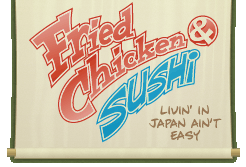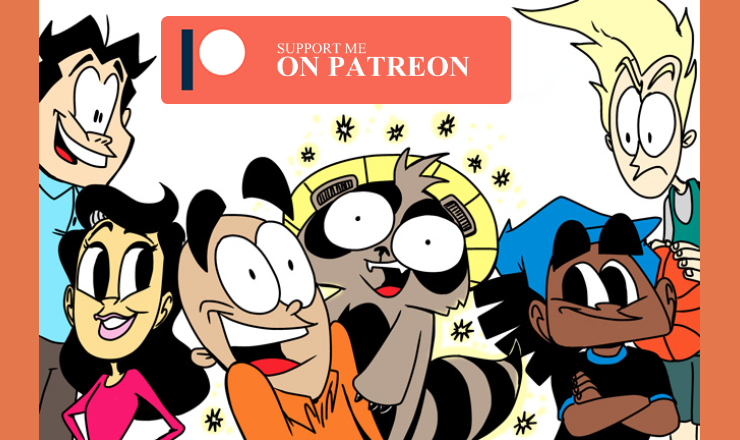How many weeks does the average person live? Maybe your first thought is way up there, like 150k weeks, 70k weeks for sure. Believe it or not, it's much less than you'd think.
Oliver Burkeman asked this question to a host of people for his book Four Thousand Weeks: Time Management for Mortals, and they had similar guesses. One person even said 300k weeks.
In reality, Burkeman discovered that if you can make it to eighty years old, you guessed it, you live only around four thousand weeks.
I love how his book explores some of the deeper issues surrounding our relationship with time. The mistakes we make in trying to control it and how expectations we place on ourselves might be just plain wrong.
When you're looking to slow life down, get things done, and make the most of it, I took advice from the book that could help you.
A constant focus on productivity is useless
I love productivity hacks and practicing new ways to get more done in a day, but how much is enough? Burkeman's book argues we should ease off trying to be a productive superhero and be in the here and now instead of living for our future.
Doing more by checking things off your list is more about clearing time for more space at a later date. When I get it all done, I think I can relax and read or watch a movie without guilt because I know I took care of business.
You will enjoy your "downtime" even more if you free up your time. At least, that's the plan.
The problem with that idea, which most of us are buying, is that our "To Do" list will get completed, and it never does, and there will always be piles of stuff to do and work to get done.
Do you know when it all stops? That's right—when you're dead.
Making sure to take care of essential responsibilities is what any reasonable person should do. When we attach how much we can do directly to our self-worth, it becomes a problem.
If you only have four thousand weeks of life, will you spend it all trying to get everything done? You can't, and you never will do it all.
We spend most of our time doing things now to set everything up for a later date rather than living for the present moment.
“The problem with trying to make time for everything that feels important — or just for enough of what feels important — is that you definitely never will. The reason isn’t that you haven’t yet discovered the right time management tricks or supplied sufficient effort, or that you need to start getting up earlier, or that you’re generally useless. It’s that the underlying assumption is unwarranted: there’s no reason to believe you’ll ever feel ‘on top of things,’ or make time for everything that matters, simply by getting more done.”
― Oliver Burkeman, Four Thousand Weeks: Time Management for Mortals
Embrace the joy of missing out
If you're living a life where there's so much, you have to do for work, family, and recreation time, life is pretty damn good already. You have so many opportunities to live life to the fullest; you don't have time to experience them all.
Four Thousand Weeks helped me understand there can never be a time where we have it all—especially not all at once.
Instead of fearing missing out, embrace what Burkeman calls the joy of missing out.
Knowing you have so much you could do but can't should fill you with glee. What a rich life you live. You have to pick and choose. There’s so much to enjoy, work for, or experience.
Feeling like we can't do it all should help us feel grateful for the good life we're leading and, in turn, live more in the moment.
“Convenience culture seduces us into imagining that we might find room for everything important by eliminating only life’s tedious tasks. But it’s a lie. You have to choose a few things, sacrifice everything else, and deal with the inevitable sense of loss that results.”
― Oliver Burkeman, Four Thousand Weeks: Time Management for Mortals
The universe could care less what you do
Here's some hard truth to swallow. You're constantly busy working like a dog to make your mark on the world, not realizing the universe doesn't care.
Maybe in the future, your friends and family will, but in the long run, you're not going to become a legend, remembered two hundred years from now for your astounding achievements and remarkable ability to keep it all together.
Perhaps it's morbid to think we're all going to die and the world will forget us, but hopefully, it can help you calm down about doing big things while alive.
If you're lucky, your family will remember you forever. Your legacy of kindness, support, and meaningful work ethic can most certainly endure. How many items you were able to check off your list every day will not.
The universe wants you to create your life and experience it in any way that might look for you.
That's it.
Should you kill yourself working for a professional legacy when you could spend more time enjoying what you've created right now?
“Cosmic insignificance therapy is an invitation to face the truth about your irrelevance in the grand scheme of things. To embrace it, to whatever extent you can. (Isn’t it hilarious, in hindsight, that you ever imagined things might be otherwise?) Truly doing justice to the astonishing gift of a few thousand weeks isn’t a matter of resolving to “do something remarkable” with them. In fact, it entails precisely the opposite: refusing to hold them to an abstract and overdemanding standard of remarkableness.”
― Oliver Burkeman, Four Thousand Weeks: Time Management for Mortals
Patience gives you power
Learning you have four thousand weeks to live may make you fear the passage of time and want to slow it all down. I'm impatient with a lot of what I want out of life, but I'm starting to see how some of the best stuff takes time to develop.
When you revel in the experience of building, practicing, and learning what you need to get where you want to go, it feels magical. Pay more attention, and time will slow down. It's like having patience with the process and appreciating everything like it's brand new.
As we age, life seems to travel by at lightning speed. Making sure to pause, meditate, smile, and give thanks when great or even not-so-great experiences occur, can help you feel life is rich and full.
And best of all, moving slower.
When you live for the now, your weeks will be longer and your life more fulfilling.
"Mortality makes it impossible to ignore the absurdity of living solely for the future."
― Oliver Burkeman, Four Thousand Weeks: Time Management for Mortals
How to get things done in your four thousand weeks
Life demands we take action no matter how much we may want to spend time relaxing and enjoying the moment. Now you know, though, there's no way to get every important item done, but you can prioritize.
Burkeman gives some ways to make the tough choices of what to focus on easier so you can get on to appreciating life more.
Determine time boundaries for work you'll get done each day. This could be as simple as deciding how much time to spend working on a given day. Let's say you start at 8 am and choose to work until 6 pm. Within those hours are when all aspects of your work are done. When time is up, you have to stop and have leisure time. I like to schedule morning work hours from 5 am to 10 am for writing and drawing, even on the weekends. After that, I'm with my family and having fun the rest of the day.
Focus on one large project at a time. You might think it's better to tackle all your significant projects a little, so you're gradually making progress on each, but Burkeman disagrees. If you can get used to dealing with the anxiety of not getting other projects done and working solely on one at a time, you'll do better work and have more confidence giving your all to what's most important right now.
Use "strategic underachievement" and decide what to fail at in advance. You feel hurt when you try hard and fail at something, but you can't succeed at everything. So, decide to be okay because there will be some tasks you either can't do well right now or won't do because there's no time. Parenting takes the front seat when my daughter needs more help with homework, and I don't have the time to write for as long. I can decide to suck at being a writer for a week until she's in a better place with her projects, knowing I can get back on the keyboard soon.
Practice doing nothing. Life keeps moving, and we feel like all we can do is roll with it. You can choose to stop and just be. People have a super hard time with this and need to pick up their phones in any open moment to scroll social media apps mindlessly. Stop, sit, and just breathe. Taking time to be mindful of yourself or meditate helps to put everything in the proper perspective and cool your jets.
Living a fulfilling four thousand weeks involves getting less done while being mindful and appreciative of what you get to do.
You don't need to do as much as you think, and training yourself to be proud of how much you can get done can upgrade your days. The classic idea of quality over quantity is what successful weeks of life are all about—time to decide what matters most to you and start living fully with the time you have.
Want more? If you’re struggling with doing original work, click here to join my (free) email list, and through comics, articles about culture, and living your truth, you can upgrade your mindset and share your art with the world.







